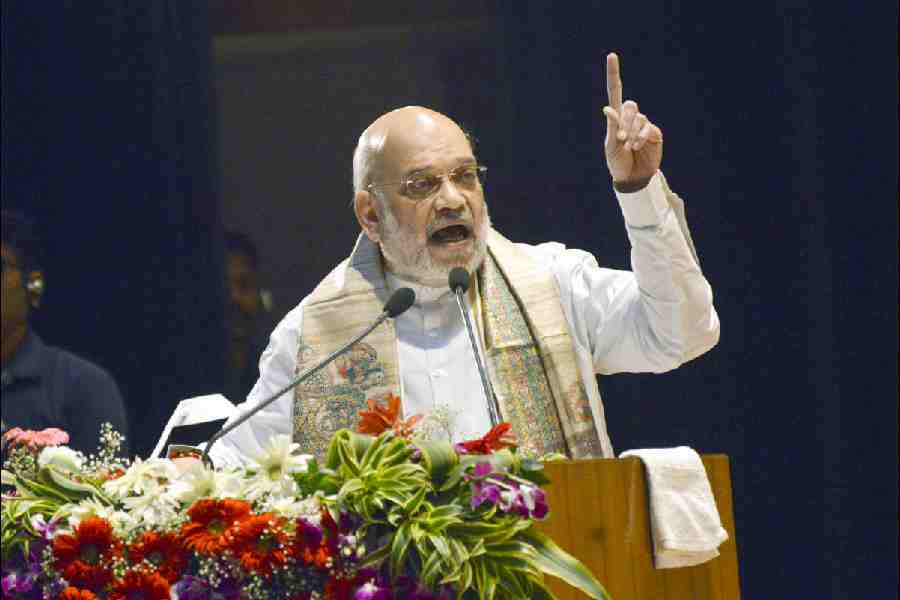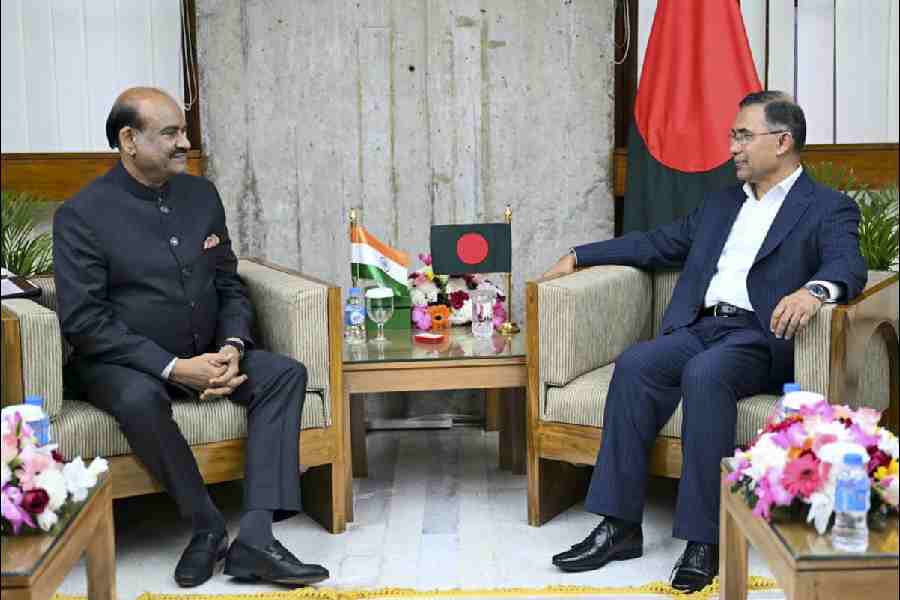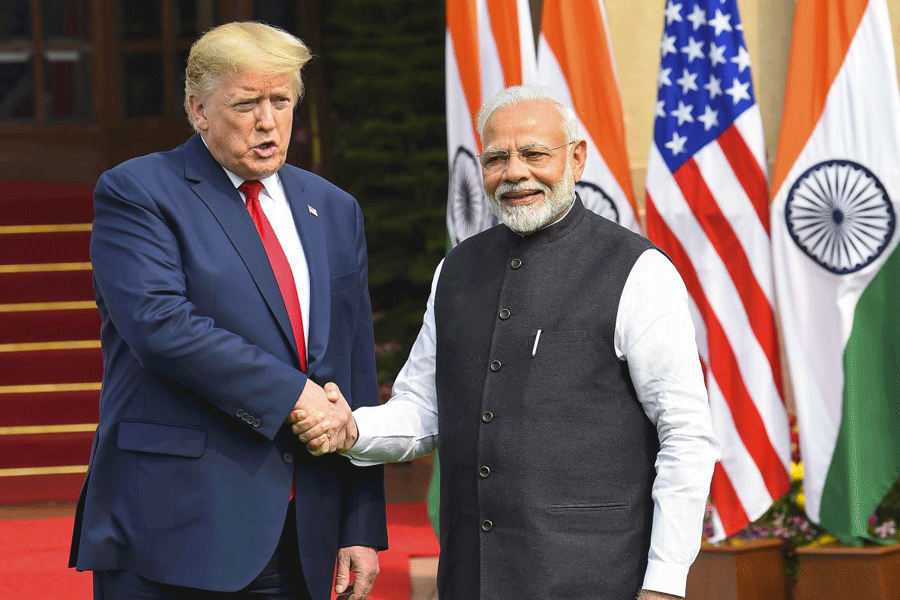|
|
| Pacifism and glory: Albert Einstein (left) and Fritz Haber (right) |
Who is a patriot? A Martian visiting India today may think patriotism calls for the intimidation of someone or the other. This is not surprising, because the Martian tourist is bound to encounter numerous self-proclaimed patriots who regularly impose themselves on the public. Violence and contempt are two tested ways to allow their patriotism to overflow onto everyone else like destructive lava. This may require spitting on people they disagree with in university seminars. It may require harassing fellow citizens because they — or their parents or grandparents — moved from one part of the country to another. Proving their patriotism may require the “proudest of patriots” — the ironclad ones so to speak —to loot and burn and kill fellow citizens because they belong to another religious community or caste. Our new brand of patriots suffers from excessive feeling and an excessive need to communicate their feelings.
Patriots. Patriotism. One thing about growing up here and not in Mars: words you think will always live in the sunshine may go pitch their tents under a suspicious cloud.
Like most children, I grew up with the comfortable certainty that a patriot is an admirable person, and that patriotism is a state to aspire to. I could even say that my early years were conducted under the benevolent gaze of the icons of our freedom struggle. My schoolfellows and I read about these human personifications of a desirable nationalism; they hung on our walls in photograph and oleograph, watching over us like reliable ancestors. I think at this point we fully intended to be descendants worthy of them. We intended to be patriotic in some modest, unsung way.
In other words, the people who were supposed to be patriots taught us, by example, that it was not a bad thing to be patriotic.
Strangely, it was poetry that first made me realize that subscribing to patriotism was a far more complicated business. There was a poem we were made to memorize year after year for elocution contests. Very few of us escaped being pushed onstage to recite soulfully: “If I should die, think only this of me:/ That there’s some corner of a foreign field / That is forever England.” Like some other sonnets Rupert Brooke wrote, “The Soldier” glorified England and the idea of dying for England. We didn’t resist the fervour of Brooke’s declaration even though Gandhi and Co., the first claimants of our loyalty, were watching from the sidelines. Like many other parts of our post-colonial lives, patriotism too acquired a compartmentalized existence in our heads.
Then I heard a teacher read out Wilfred Owen’s “Dulce et Decorum Est”. It took just that one reading to bring Brooke’s romantic edifice crumbling down.
Later I found out that Brooke was completely confused when war broke out in August 1914. He wrote of his “resentment that he might have to volunteer for military training and service”. But despite his reluctance to commit himself, he “vaguely imagined a series of heroic feats, vast enterprise, and the applause of crowds”. But even before this information came, Owen’s exposé of “patriotic warfare” easily triumphed over Brooke’s chocolate-box heroism. In the gritty, honest poem that became the best-known poem of World War I, Owen took on the kind of credo embedded on seals in an official sounding Latin. “Dulce et decorum est pro patria mori” — the rule that it is sweet and right to die for your country — got shown up by the poem for the “old lie” it was. The “patriots” in Owen’s poem were “Bent double, like old beggars under sacks,/ Knock-kneed, coughing like hags…”. They did not die in a blaze of glory, but like ignominious animals “guttering, choking, drowning” in a thick green sea of poison gas. Patriotism and war could never again have a simple relationship as if they lived only in the minds of little boys playing battle.
This painful discovery of growing up — that patriotism was not always simple or beautiful, that it could even be as lethal as poison gas — was reinforced in unexpected ways. The suspicion raised by a poet was confirmed by a chemist. The German chemist, Fritz Haber, is part of chemistry courses because of the process of synthesizing ammonia. But Haber also served his nation by pioneering the use of poison gas in the killing fields described by Owen’s poem. Haber’s story, more than Brooke’s, is a cautionary tale of patriotism.
Haber’s work brought him fame and honour in Germany, and in 1911 he was appointed director of the newly established Kaiser Wilhelm Institute. Haber and his team worked on the possible uses of gaseous compounds in warfare, first chlorine and later mustard gases. The effect would be that the chlorine would dissolve into the moisture on the enemies’ skin and, particularly, the mucous membranes of the eyes, nose, throat and lungs. There it would be converted into hydrochloric acid, which is both highly caustic and poisonous. Any soldier breathing in the gas would be almost instantly incapacitated and many would die, sooner or later, from its effects. Even the survivors would be severely incapacitated, many for a long time, some permanently. In a horrific development reminiscent of Owen’s poem, Haber visited the war front, and personally supervised some of the chemical deployment. And just as the war poets warned, the tragedy of war came home as well, in more ways than one. First, Haber’s wife Clara, who opposed his involvement with chemical warfare, committed suicide using his military sidearm. Then, despite his conversion to Christianity and his super-patriot status, Haber began to be viewed as a Jew with the rise of Nazi power. He had to leave Germany. His life and work increasingly illustrated what Albert Einstein would later write in a condolence letter to Haber’s family after the chemist’s death: “His was the tragedy of the German Jew, the tragedy of unrequited love for the homeland.”
Historians, philosophers, playwrights and novelists have been fascinated by Haber’s life, and by the comparison between him and another Nobel Prize winning contemporary, Einstein. Both were Jewish and influential scientists. But Haber was convinced that scientific ideas must be useful; Einstein was a dedicated pacifist who believed that “the role of the scientist is to think, not to tell the future.” (The irony is that Einstein’s ideas too fell prey to “the law of unintended consequences”.) And while Haber’s patriotism took his science to the battlefield, Einstein rejected Germany’s aggressive war aims in 1914. Haber converted to Christianity and was a firm German patriot until the rise of the Nazis. Einstein, a committed internationalist and a pacifist, was a proud, though secular, Jew. Partly as a result of his liberal views, Einstein’s theory of relativity came under vicious attack from anti-Semites. On patriots, Einstein wryly remarked, “How I wish that somewhere there existed an island for those who are wise and of goodwill! In such a place even I would be an ardent patriot.”
After this kind of journey — having seen the dangers of distorting patriotism — it should not exactly be difficult to resist the persuasive powers of our noisy Indian patriots today.












